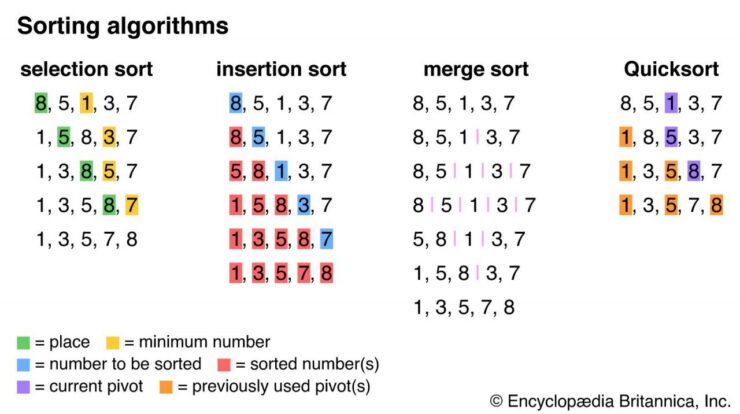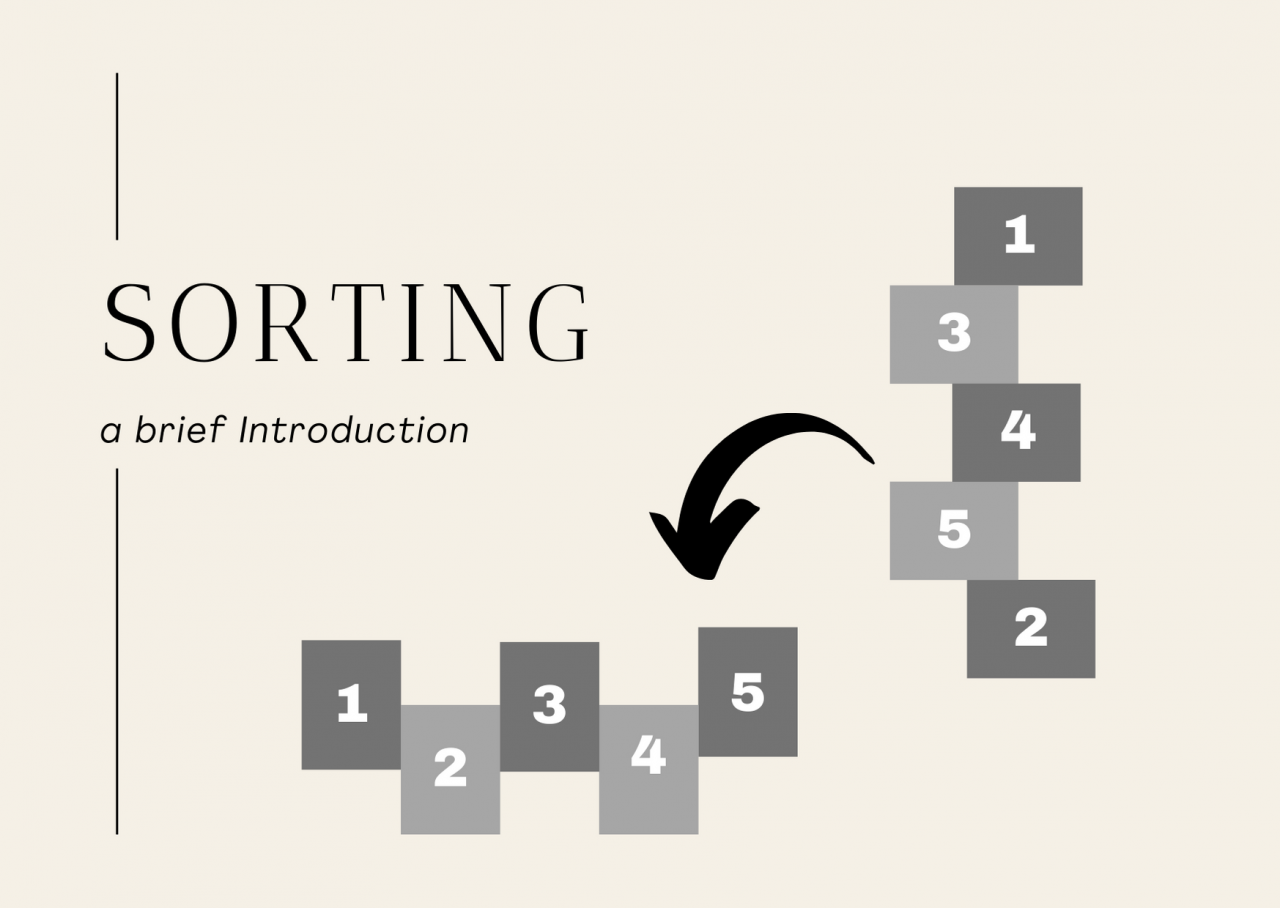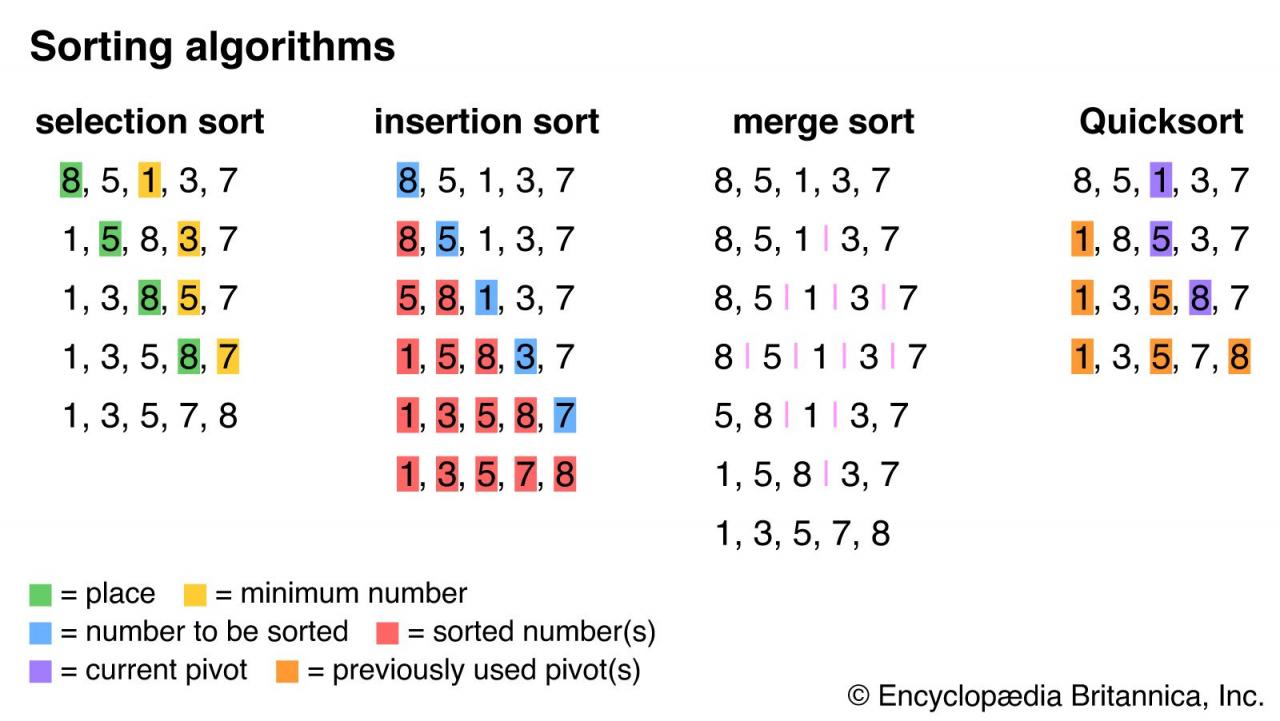
Sort definition – Sorting, the process of arranging data in a specific order, is a fundamental concept in computer science and data analysis. From organizing a list of names alphabetically to ranking search results by relevance, sorting algorithms play a crucial role in various real-world applications.
This comprehensive guide explores the concept of sorting, its types, applications, implementation, and performance analysis, providing a thorough understanding of this essential data manipulation technique.
Definition of Sort

Sorting is a fundamental operation in computer science that involves organizing data into a specific order, typically numerical or alphabetical. It is used to arrange items in a logical sequence, making it easier to search, retrieve, and process data efficiently.
Sorting algorithms are designed to sort data in ascending or descending order. There are various types of sorting algorithms, each with its own advantages and disadvantages.
Types of Sorting Algorithms, Sort definition
Common sorting algorithms include:
- Bubble Sort
- Selection Sort
- Insertion Sort
- Merge Sort
| Algorithm | Time Complexity |
|---|---|
| Bubble Sort | O(n^2) |
| Selection Sort | O(n^2) |
| Insertion Sort | O(n^2) |
| Merge Sort | O(n log n) |
Conclusion: Sort Definition

Sorting algorithms continue to evolve, with ongoing research focusing on improving efficiency and optimizing performance. As data volumes and complexity increase, advanced sorting techniques will become increasingly important in managing and analyzing large datasets.
FAQ Guide
What is the difference between a bubble sort and a merge sort?
Bubble sort repeatedly compares adjacent elements and swaps them if they are out of order, while merge sort divides the array into smaller parts, sorts them recursively, and merges them back together.
What is the time complexity of a quicksort algorithm?
The average time complexity of quicksort is O(n log n), but it can be O(n^2) in the worst case.
How can I implement a sorting algorithm in Python?
Python provides the built-in sorted() function for sorting lists. Alternatively, you can implement custom sorting algorithms using loops and comparison operators.





